
The email alerts service allows anyone who registers their email address to be notified via email when new content goes online.
Recommend this journal to your friend or library.
Manuscripts should be submitted online through our website or as an email attachment to the editorial office at editor.jvi@nobleresearch.org
- Latest Articles
- Most Viewed
Latest Articles

Harnessing donor unrestricted T-cells for new vaccines against tuberculosis
13 May 2019
Specific knowledge gaps and research priorities that must be addressed to realize the full potential of DURTs as part of new TB... More
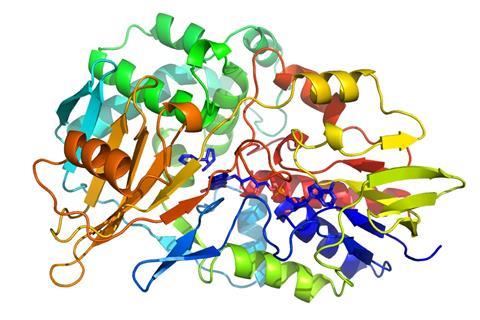
Optimization of a multivalent peptide vaccine for nicotine addiction
11 Mar 2019
Peptide which is produced by solid-phase protein synthesis, contains B cell and T cell epitope domains and eliminates the ... More

Vaccination associated acute disseminated encephalomyelitis
04 Feb 2019
The differential diagnosis of ADEM should exclude the possibility of infectious or other autoimmune encephalitis. ... More
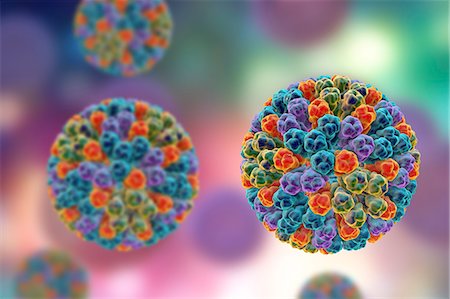
Development of a live attenuated vaccine against Muscovy duck reovirus infection
06 Dec 2018
The CA strain exhibited striking genetic stability, excellent safety, and effective immunogenicity. This CA strain of MDRV is a... More

A framework for research on vaccine effectiveness
10 Nov 2018
Essential for understanding whether some diseases can be eliminated versus being controlled. The effectiveness of vaccines shou... More

Improving the stability of recombinant anthrax protective antigen vaccine
16 Oct 2018
Finding suggests that modification of Asn713 and Asn719 of rPA to deamidation-resistant amino acids may i... More

Polysaccharides as vaccine adjuvants
09 Aug 2018
Polysaccharide adjuvants will be developed and widely used in clinical practice with more in-depth investigations of polysaccha... More

The influence of the intestinal microbiome on vaccine responses
13 Jul 2018
Adequately powered studies using whole-genome sequencing are needed to investigate in more detail the influence of the int... More

Impact of a clinical interventions bundle on uptake of HPV vaccine at an OB/GYN clinic
05 Jun 2018
Implementation of this intervention bundle effectively reduced the monthly rate of MO and increased the prevalence of women who... More
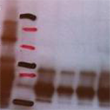
Silk-based microneedle transdermal immunization with EV71 vaccines elicits potent immune response
05 Aug 2016
These findings suggest that inactivated EV71 virus was superior to rVP subunit vaccine in stimulating neutralizing antibody and... More
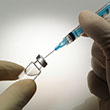
Immunogenicity of 13-valent pneumococcal conjugate vaccine in immunocompetent older adults with stable underlying medical conditions
01 Jul 2015
The 13-valent pneumococcal conjugate... More
Most Viewed

Immunogenicity of 13-valent pneumococcal conjugate vaccine in immunocompetent older adults with stable underlying medical conditions
01 Jul 2015
The 13-valent pneumococcal conjugate... More
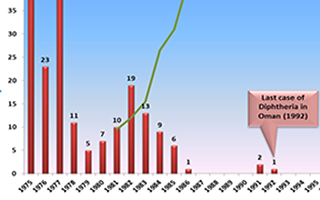
Impact of strategies and activities for reducing morbidity and mortality of vaccine-preventable diseases in Oman: A status report
01 Feb 2015
Immunization is the only child survi... More

Suboptimal vaccination rates in rural Ghana despite positive caregiver attitudes towards vaccination
01 Sep 2014
Background: Vaccines save mor... More

Home-based vaccination records and hypothetical cost-savings due to avoidance of re-vaccinating children
01 May 2014
As national immunization programmes,... More

An evaluation of the indirect cohort method to estimate the effectiveness of the pneumococcal polysaccharide vaccine
01 May 2014
We examined the validity of the indi... More

Influenza and pneumococcal vaccination in hospitalized adults with pandemic (H1N1) 2009: Immunization practices and impact on clinical presentation and outcomes
01 Dec 2013
The purpose of this study was to det... More

Comparison of the live attenuated mumps vaccine (Miyahara strain) with its preattenuated parental strain
01 Aug 2013
Live attenuated mumps vaccines have ... More

Events following BCG vaccination during neonatal period and factors that might affect potency and side effects
01 Jun 2013
Introduction: In Sri Lanka, B... More

Routine immunization services in Africa: back to basics
01 Jun 2013
National immunization programmes wer... More
Aims And Scope
Journal of Vaccines & Immunization (JVI) is an international refereed journal, which publishes high-quality original articles reporting new information on basic and clinical aspects of vaccines and immunization. The wide range of topics includes all types of vaccines, vaccine development, development of antibodies, purifying immunoglobulins, production, manufacturing, delivery, history of vaccinology and immunopathology. The journal covers relevant topics range from basic research to applications, safety, disease prevention, molecular biology, synthetic peptides, recombinant antigens and new immunogens.
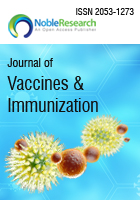
Original research: primary research from any area of Vaccines, Immunization, or Vaccines & Immunization related/interdisciplinary area.
Case reports: reports of clinical cases that can be educational, describe a diagnostic or therapeutic dilemma, suggest an association, or present an important adverse reaction.
Editorial: to introduce and comment on major advances and developments in the field.
Methodology: present a new experimental method, test or procedure. The method described may either be completely new, or may offer a better version of an existing method. The article must describe a demonstrable advance on what is currently available. The method needs to have been well tested ideally, but not necessarily, used in a way that proves its value.
News and commentary: short, focused and opinionated articles on any subject with in the journal’s scope. These articles are usually related to a contemporary issue, such as recent research findings, and are often written by opinion of leaders invited by the editorial board. Editorial board members and section editors may write such articles to highlight hot or emerging areas of research within a given field.
Rapid communications: devoted to the publication of short papers presenting highly original and significant material.
Review: to review systematically progress and unresolved problems in the field and make suggestions for future work. Comprehensive, authoritative, descriptions of any subject within the scope of Vaccines & Immunization journal.
Short reports: brief reports of data from original research.
Letters to the Editor: to discuss and make reply to the contributions published in JVI, or to introduce and comment on a controversial issue of general interest.
All articles of JVI are posted online immediately as they are ready for publication. All articles will be assigned a DOI number (Digital Object Identifier) where they become searchable and citeable without delay.
- JVI offers scientists the opportunity to publish their research rapidly in an open access medium that is freely available online to researchers worldwide.
- Electronic submission of manuscripts.
- Immediate publication tentatively within a month/two months of Initial submission.
- Efficient and objective peer review with a streamlined electronic production workflow.
- No barriers, which helps your research reach the entire scientific community worldwide.
- Our professional staff adds further value to your paper through the copy-editing process, which minimize stylistic errors and improves readability.
- Our professional staff continuously working to improve the search engine rankings for NobleResearch group journals.
- Our linking program extends too many abstracting and indexing databases, library sites, and includes participation in CrossRefTM.
Peer-review is commonly accepted as an essential part of scientific publication. We appreciate the time that referees devote to assessing the manuscripts we send them, which helps to ensure that NobleResearch journals publish only material of the highest quality. Peer reviewers are asked to give their opinion on a number of issues pertinent to the scientific and formal aspects of a paper, and to judge the papers on grounds of originality and urgency. All relevant information will be forwarded to the author(s). There are several types of decision possible for each article.
- Accept manuscript without revision
- Accept after minor or major revision
- Submit elsewhere, if the manuscript is better suited for another journal in our group
- Reject manuscript, if the manuscript is substandard
In addition, papers may be rejected directly by the Chief Editor if judged to be out of scope or if scientifically or formally sub-standard. When asking for revisions, reviewers have two possible goals: to ask authors to tighten their arguments based on existing data, or to identify areas where more data are needed. Even formal revision may be required if the language or formalities is sub-standard. To facilitate rapid publication, authors are given a maximum of two months for revision. After two months, revised manuscripts will be considered as new submissions.
The review process is strictly confidential and should be treated as such by reviewers. Because the author may have chosen to exclude some people from this process, no one not directly involved with the manuscript, including colleagues or other experts in the field, should be consulted by the reviewer unless such consultations have first been discussed with the professional editor.
NobleResearch believes that an efficient editorial process that results in timely publication provides a valuable service both to authors and to the scientific community at large. We therefore request that reviewers respond promptly, usually within fourteen (14) days of receipt of a manuscript. If reviewers need more time, we request that they contact us promptly so that we can keep the authors informed and, if necessary, assign alternative reviewers.
Authors may and should take advantage of the web-based nature of the publication by submitting supplemental files that include animations, software demonstrations and innovative graphics. Supplemental files will be evaluated with the manuscript as part of the peer-review process. They should not exceed 20 megabytes in size. We accept the following file formats for supplemental files: TIF (tif), JPEG (jpg), GIF (gif), Animated GIF (gif), PostScript (ps), Encapsulated PostScript (eps), Adobe Photoshop (psd), AdobePDF (pdf), Audio (au), Audio (mp3), Audio (wav), MPEG (mpg), Quicktime (avi), Quicktime (mov).
Copyright on any open access article in a journal published by NobleResearch Publishers is retained by the author(s).
The Creative Commons Attribution License 4.0 formalizes these and other terms and conditions of publishing articles. In accordance with our Open Data policy, the Creative Commons CC0 1.0 Public Domain Dedication waiver applies to all published data in NobleResearch Publishers open access articles. Please contact us if there are any questions regarding Copyright policy.
Journal of Vaccines & Immunization offers a wide range of advertising opportunities to promote your product or service. NobleResearch group reserves the right to reject any advertisement not considered suitable for publication.
For more information please contact:
Marketing Director
Email: marketing@nobleresearch.org





